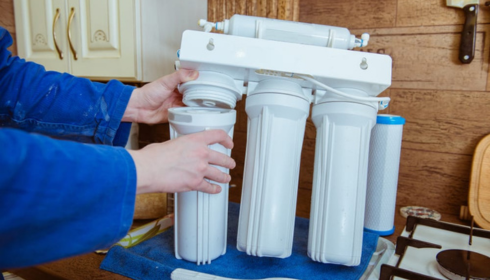There’s something oddly comforting about drawing water straight from the ground. No middleman, no city pipes—just nature doing its job. But as anyone who relies on a private well will tell you, that relationship with groundwater can be a little unpredictable. Some days the water tastes crisp and fresh; other days it may smell faintly like rotten eggs or leave mysterious stains on the sink. That’s when well water treatment isn’t just a convenience—it’s survival for your household.
I’ve met families who thought “it’s just a little iron” until their laundry turned permanently orange, and others who ignored subtle sulfur odors until dinner guests politely pushed their glasses of water aside. The truth is, well water is wonderful when it’s managed properly, but it demands attention, especially as environmental factors, equipment age, and even seasonal changes come into play.
Understanding Why Wells Are Different
Unlike municipal water systems, which are regulated and tested constantly, private wells fall squarely on the shoulders of the homeowner. That means testing for contaminants, maintaining pumps, and installing the right filtration systems is your responsibility. While that sounds intimidating, it doesn’t have to be. Think of it like maintaining a car: regular tune-ups prevent bigger headaches down the road.
Groundwater can pick up all kinds of “passengers” on its way to your faucet—minerals like iron and manganese, bacteria, pesticides from nearby farms, even naturally occurring arsenic in some regions. And because these contaminants don’t always announce themselves with a taste or smell, it’s easy to underestimate what’s in your glass. A professional well water treatment service near me can help you cut through the guesswork, offering testing, filtration, and long-term solutions tailored to your specific area.
Florida’s Relationship with Groundwater
If there’s one place that proves how regional conditions shape water issues, it’s Florida. Surrounded by wetlands, sandy soil, and layers of limestone, the state’s aquifers are both a blessing and a challenge. Many Floridians rely on wells for daily living, yet the same porous ground that makes water accessible also lets contaminants sneak in.
Saltwater intrusion is a huge concern near coastal areas, while agricultural zones battle nitrates. Add in the infamous Florida humidity, and bacteria growth can become a real problem if systems aren’t monitored. That’s why a specialized well water filtration system Florida providers recommend isn’t one-size-fits-all—it’s adapted to the quirks of the region’s groundwater. What works in the Midwest won’t necessarily work in Sarasota or Tallahassee.
The Hidden Signs You Shouldn’t Ignore
You don’t need to be a chemist to spot trouble brewing. Your water itself usually leaves clues. Here are a few signs many homeowners notice before realizing they need professional intervention:
- Unusual smells – Sulfur often shows up as that unmistakable “rotten egg” odor.
- Discoloration – Brown, orange, or even green stains on sinks, tubs, and laundry are red flags for iron or copper.
- Cloudiness – Sediment or bacteria can make water appear cloudy or milky.
- Dry skin or hair – Hard water minerals can wreak havoc on your shower routine.
- Sudden pressure drops – Sometimes more about equipment than water quality, but still worth investigating.
Ignoring these signals can turn minor annoyances into expensive fixes. I once spoke with a homeowner who dismissed faint rust stains for years, only to discover his pipes had corroded far beyond a simple cleaning.
Emergencies Happen When You Least Expect
Here’s the thing about wells: they don’t wait for a convenient moment to act up. Pumps fail during holiday gatherings, bacteria show up right after you’ve filled the pool, and filters clog on the very day you’re hosting guests. That’s why many service companies now offer emergency well water treatment repair, so you’re not left scrambling with bottled water while waiting weeks for an appointment.
An emergency response team can address immediate problems—like shocking a contaminated well, repairing a dead pump, or bypassing a failed filtration unit—before they spiral into bigger, more costly issues. Having a trusted number on speed dial is less about paranoia and more about peace of mind.
Choosing the Right Partner in Water Care
There’s no shortage of companies promising clean water, but finding the right partner takes a little digging. Here are a few tips:
- Look for certifications. A reputable service will have technicians trained in water quality standards and state-specific regulations.
- Check reviews. Local experiences matter more than generic national ads. Your neighbor’s success story speaks louder than polished marketing.
- Ask about testing. A good company doesn’t push equipment without showing you what’s in your water first.
- Consider maintenance. Like HVAC systems, filtration setups need upkeep. Ask about service plans instead of just one-time installs.
Think of your water provider as a long-term ally, not just a contractor. The best ones take time to explain options, listen to your household’s concerns, and check in beyond the installation day.
Prevention Beats Panic Every Time
The most underrated part of well water care is routine maintenance. Testing at least once a year (more if you live near agriculture or industry) can prevent 90% of the emergencies that homeowners dread. Simple fixes, like replacing filters on time, disinfecting the well cap, or upgrading outdated equipment, save money in the long run.
It’s a bit like dental hygiene—no one loves scheduling cleanings, but it’s a lot better than root canals. Wells are no different. Catching bacteria early, addressing pH imbalances, or swapping a weakening pump keeps your water safe and your wallet intact.
Living with Confidence in Your Water
At the end of the day, clean water isn’t a luxury—it’s essential. It touches every part of life, from your morning coffee to the way your kids brush their teeth. When you take well maintenance seriously, you’re not just investing in appliances or plumbing—you’re investing in your family’s health and peace of mind.
And yes, there’s always a bit of unpredictability with wells. Maybe the water turns cloudy after a heavy rain, or a filter clogs faster than expected. But with the right support system, those bumps in the road become manageable. Instead of fearing what might go wrong, you’ll feel equipped to handle whatever comes up.
So if you’re sipping from a glass of water right now and wondering whether it’s as clean as it should be, maybe it’s time to take that thought seriously. The resources, professionals, and technology exist to make your well not just reliable, but something you can truly trust.
Final Thoughts
Clean, safe, great-tasting water isn’t something you should compromise on, especially when you depend on a private well. Whether you’re in Florida fighting mineral buildup, in the Midwest battling hard water, or anywhere in between, the key is proactive care. Reliable service, thoughtful filtration, and quick emergency help are the backbone of a stress-free relationship with your well.
So don’t wait for disaster to strike. Test regularly, maintain consistently, and keep a trusted expert within reach. That way, every time you turn on the tap, you’ll have more than water—you’ll have confidence.

